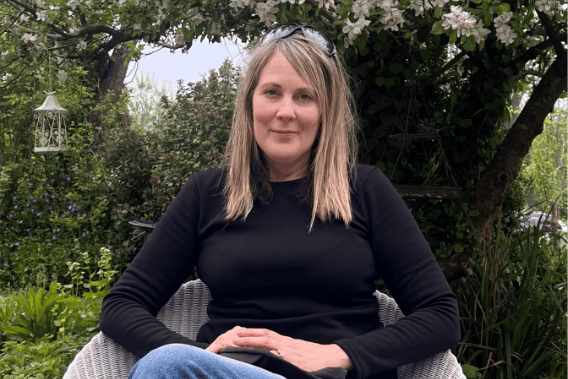A blanket ban on building near the River Lugg has left residents and businesses facing financial losses.
The area’s county council imposed planning restrictions in the Lugg catchment in October 2019 unless developers could demonstrate “nutrient neutrality” - in an effort to mitigate nutrient pollution in the River Lugg, which is a designated Special Area of Conservation.
The legal claim will allege that a material cause of the high nutrient levels and the resulting moratorium is the pollution allegedly caused by Dwr Cymru Welsh Water and the Avara Foods poultry group (including Avara Foods and Freemans of Newent).
Now, thousands of people are joining a collective legal action against Dwr Cymru Welsh Water and the Avara Foods poultry group in a bid to recoup their losses.
Justine Williams is one of many home owners affected by the Lugg moratorium.

“I had outline permission to build a family home, but as I moved to get full planning, the restrictions meant it could not go any further, and the dream was gone,” she said. She adds: “All my savings went on the plans.”
Justine says many more residents may not be aware of the impact of the building restrictions.
“That’s why I’m joining the legal action,” she said. “The time to act is now. I spent all my life on the river. I played here, had picnics in the summer, it was so beautiful.
“That’s what I wanted for my children, but I wouldn’t let them anywhere near it now. We need to stop the pollution for our health, for the river’s health. It’s awful to see what has been done in the name of profit.”
Leading law firm Leigh Day is currently leading a claim on behalf of residents in the wider Wye, Lugg and Usk region who say they have been negatively impacted by nutrient pollution of the rivers and land.
The claim alleges that the pollution has been caused by chicken waste from operations by the Avara Foods poultry group as well as sewage from works by Dwr Cymru Welsh Water.
Celine O’Donovan, senior associate solicitor with Leigh Day, says a “very real cost” is being borne by local residents.
She adds: “We believe this is entirely the wrong way round, as they have not contributed to the river pollution in the first place.
“The nutrient loads from these kinds of small developments are a drop in the ocean in comparison to hose which we allege are the result of the defendants’ operations.”
While some developers can purchase credits in local wetlands to offset sewage from property built in the area, costs can run into thousands of pounds. Many people have been waiting for years due to lack of supply, and in the meantime have faced mounting costs for surveys, planning applications and permissions and alternative accommodation. Others, like businessman Jeffrey Hancorn, have faced life changing consequences.

Jeffrey grew up in the small village of Canon Pyon, where he intended to build a development of 33 homes.
“I knew how difficult it was for young families not only to purchase a house, but also to even find one to rent in the Herefordshire countryside,” he explains.
“When my land was included in the local development plan I was excited about building houses for local people to both purchase and rent.
“Sadly, the moratorium killed off that dream.” He adds: “I had sold my business expecting to get involved in the development, but seven years later, with the cost of phosphate credits now north of £250k, this whole project has been a nightmare of delays.
“These houses would have been built, and young families would be in them if it was not for the moratorium.”
The collective legal action could help people recoup some of the losses they have suffered, explains Celine O’Donovan.
“People have a right to seek compensation and restoration of their environment through the courts, which are there for them in their hour of need,” she adds.
“Even if the moratorium was lifted tomorrow, people have suffered substantial losses and by joining the legal claim, they can seek recovery of those losses.”
The claim is also calling for the defendants to clean up the alleged pollution and to put measures in place to prevent future pollution.
“There is also a deterrence factor,” says Ms O’Donovan. “Potential polluters would understand that this community will not tolerate the pollution of their rivers.
“The more people who join the claim, the stronger that message will be. There is huge strength in numbers and every voice matters.”
To join the claim or find out more about the environmental impact of the pollution and the group legal action visit www.leighday.co.uk/riverwyeclaim.





Comments
This article has no comments yet. Be the first to leave a comment.